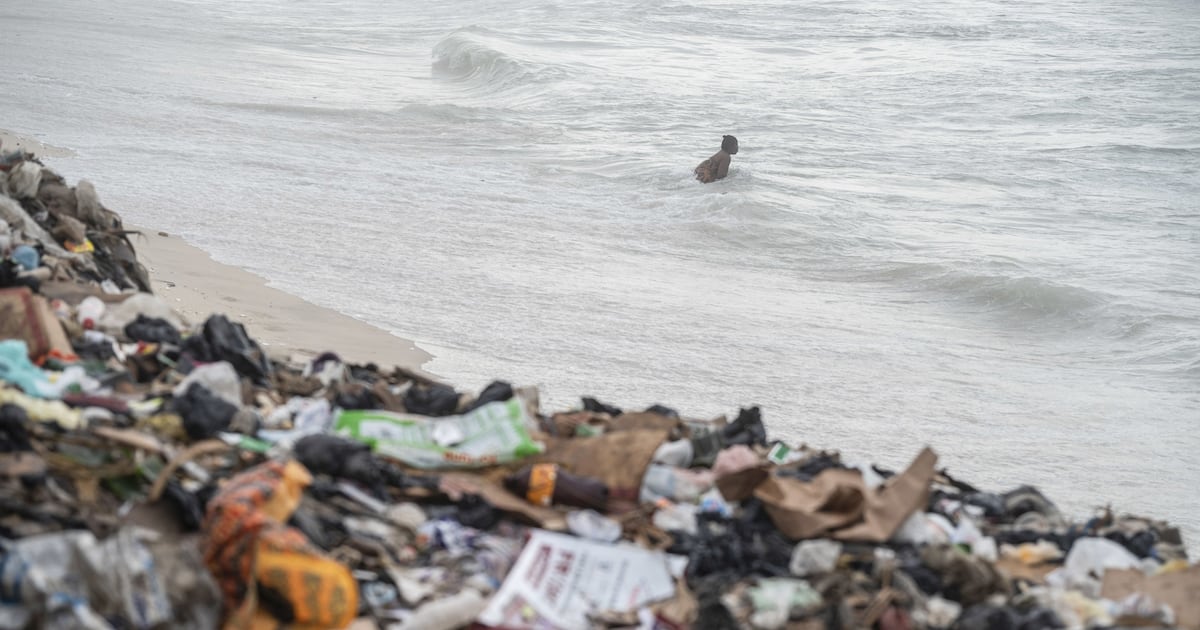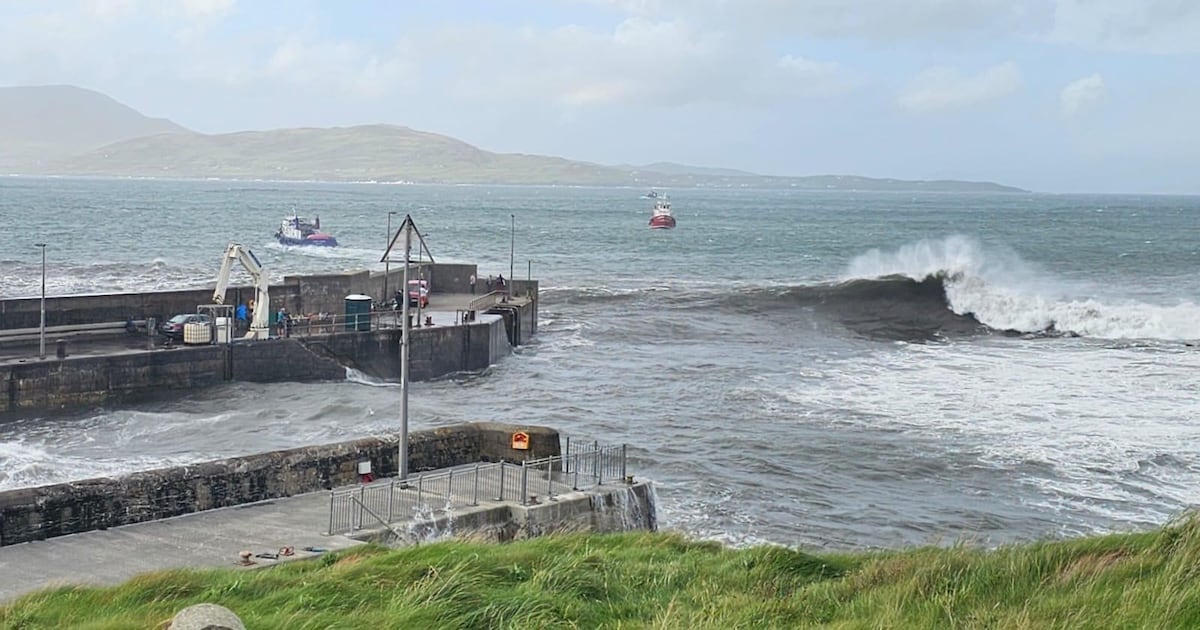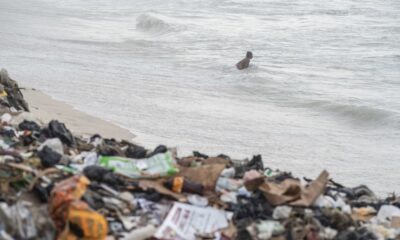Opinion
If Europe keeps placating its own far right, how can it possibly stand up to Trump? | Thu Nguyen and Jannik Jansen

Read more on post.


When Ursula von der Leyen made her pitch to become president of the European Commission back in 2019, she put the “European way” at the heart of her appeal. Under her direction, she said, Europe would be a principled power built on multilateralism, fair trade and the rules-based order, standing firm and united against authoritarianism, protectionism and the politics of zero-sum thinking.
Six years on, she is again calling on Europe to “fight” for that future. But the vision is fading fast. This summer brought a cascade of negative headlines decrying Europe’s “humiliation”; it was the worst in years, if not in a century, some critics said. All pointed to the same reality: European leaders, fearing both a trade war and the loss of US support for Ukraine, had bowed to the wishlist of the Trump administration and left their tariff-retaliation toolbox untouched. Τhey lavished the US president with praise and applauded an agreement that was anything but balanced. Dressed up as pragmatism, it felt like capitulation to many Europeans.
But the issue runs much deeper than a lopsided trade “deal”. Europe’s overt submission to Trump is emblematic of a broader malaise. EU leaders and institutions are not only bending to the hardening authoritarianism across the Atlantic. They also routinely placate far-right forces at home. In doing so, they corrode the very values and principles – democracy, rule of law, open markets and climate responsibility – that they claim to uphold. And often, with a tone of moral superiority, remind others to follow.
The pattern plays out across several policy areas.
In recent years, EU migration policy has become a clear marker of how Europe’s values have drifted. Under pressure from the far right, EU governments and institutions alike are framing migration as a threat instead of a source of strength for Europe’s societies and economies. This has consequences for the rule of law and human rights. Illegal pushbacks are routinely tolerated. NGOs conducting rescue missions in the Mediterranean face obstruction. And “migration deals” with countries such as Tunisia effectively outsource Europe’s accountability to governments that openly flout human rights. The Schengen Agreement, once a symbol of European integration, risks becoming collateral damage as temporary border checks turn semi-permanent in several EU countries under the pretext of migration pressure.
A similar political dynamic has begun to undermine the EU’s climate ambitions. The European Green Deal, once hailed by Von der Leyen as “Europe’s man-on-the-moon moment” has increasingly fallen prey to a far-right crusade casting climate policies as an elite imposition burdening farmers, businesses and ordinary citizens. Centre-right parties, eager to capitalise on the momentum, have joined in. They profess commitment to Europe’s climate ambitions. But instead of making a forthright case for the Green Deal’s economic and societal benefits, and engaging in a serious debate among democratic forces on the best path forward, these parties have increasingly chosen to dilute or delay key measures – even if it means aligning themselves with parties on the far right, and far from the EU’s democratic centre.
Many of these decisions are defended in the name of pragmatic realism. Submission to Trump, some argue, buys Europe time since de-risking, strengthening defence and implementing deeper reforms cannot happen overnight. Stricter migration policies are presented as reflecting the will of the overwhelmed people, irrespective of possible human rights violations. Climate ambitions are to be slowed until economic growth and innovation “catch up”. And with elections always looming somewhere in the EU, many mainstream parties warn they must act on voters’ “real issues” or risk handing victory to the far right.

Under pressure from illiberal forces at home and abroad, leaders are increasingly deciding to trade longstanding principles for the illusion of stability. However, history shows this damage-limitation strategy cannot win over authoritarian actors. And each concession chips away at the stigma that once kept far-right ideas at the margins. What was once extreme is increasingly treated as normal, putting the rule of law and democracy under strain across the continent. The problem is no longer confined to specific policy areas or individual member states such as Hungary or Slovakia. From German local authorities attempting to oppress pro-Palestinian demonstrations, Italy’s prime minister discrediting the judiciary for blocking her migration policies, the European People’s party campaigning in Brussels to delegitimise NGOs, to several EU governments calling to reinterpret the European convention on human rights, a dangerous pattern is emerging across the EU.
Once European leaders begin treating fundamental rights, the courts and civil society as obstacles to the popular will, they open the door to a dangerous slide, where upholding values shifts from obligation to discretion.
after newsletter promotion
Nowhere is this selective application of values more glaring than in the EU’s response to Gaza. Its persistent failure to take meaningful action against Israel’s flagrant violations of human rights and international law risks leaving a lasting scar on its global credibility. Even the commission president’s freezing of bilateral support for Israel, and proposal to sanction extremist ministers and violent settlers and partially suspend the EU-Israel association agreement, came only after two years of inaction.
Europe cannot afford to forget a fundamental truth: values and principles are not luxuries to be set aside when the pressure mounts. Defending them is not naive idealism – it is a strategic necessity, both to counter authoritarianism at home and to shape a rules-based, multipolar world abroad.
If European leaders remain still and silent, hoping Trump will simply fade away, they risk giving up not just their dignity but their political agency. By doing so, they are allowing far-right forces to fill the void and tilt the balance permanently. Globally, the only viable path is to build new partnerships – but these will only take root if Europe remains united and defends the values it professes to hold with the same conviction it demands from others. The same is true at home: placating the far right by adopting far-right policies does not neutralise extremism: it legitimises it and hollows out the union from within. Instead, Europe must actively champion pluralism, the rule of law, open societies and climate action as sources of strength.
If the “European way” is to mean anything, Europe must finally stand up for what it stands for – not just in words, but in action.
-
Thu Nguyen is deputy director of the Jacques Delors Centre at the Hertie School in Berlin. Jannik Jansen is a policy fellow at the same institute
Opinion
The Irish Times view on textile waste: what a load of rubbish

Read more on post.
Ireland is the second largest producer of textile waste per head in Europe, second only to Belgium. We each consume 53kg of textiles each year – more than double the European average. To put the figure in context, a T-shirt weighs between 100 and 250 grams, and a winter duvet can weigh 3 kg.
It’s a lot of clothes, bedding and curtains to throw out and most of it goes in the bin, with only a third being recycled via clothes banks and charity shops. Given the dubious distinction of being one of the worst offenders when it comes to textile waste you might assume that we would quickly and wholeheartedly embrace new rules to reduce textile waste adopted by the European Parliament earlier this month.
Under the new directive, producers who make textiles available in the EU will have to cover the cost of their collection, sorting and recycling. The rules will apply to all producers, including online sellers, irrespective of whether they are established in an EU country or outside it.
The measures will be implemented through a producer responsibility scheme similar to the Re-turn system for drink bottles and cans set up by packaging and drinks companies.
Member states have 30 months from the directive’s entry into force to establish a scheme. There is, of course, no reason why it cannot be done sooner and every reason why it should be.
But if the Re-turn scheme is any guide, the Government will be in no rush when it finds itself caught between industry lobbying and fears the measure may push up prices.
The Single Use Plastic directive came into effect in 2019 but the Irish deposit-based scheme for recycling drink bottles and cans launched in February 2024. Many other European countries brought them in 20 years ago.
Despite initial teething problems, the Re-turn scheme has been supported by the public and has helped the industry meet its EU-mandated recycling targets. There is no reason to believe consumers will not support a textile recycling scheme sooner rather than later.
Opinion
High seas drama: Áine Ryan on a Tory Island ferry crossing she would rather forget

Read more on post.
It’s hard to believe it is 30 years since we were weather-bound on Tory Island. It was mid-August 1995 and a group of us from a less exposed island down the coast had decided to explore this outpost off Donegal. Part of the attraction was that it still boasted a monarchical regime whose king may not have worn a crown but boy could Patsy Dan Rodgers, the King of Tory, make music and talk the talk.
Of course, we had an anointed leader of our community with us too: The Priesht, who for the sake of diplomacy shall remain anonymous due to certain shenanigans on the deck of the boat on our return journey to Magheroarty.
The memory of that summer sojourn and the number of 16-hand reels and singing sessions until dawn came bouncing back during a recent rocky August voyage from Clare Island, my home for a time.
Ironically it happened to be on the same ferry, the Tormore, which was the Tory ferry in the mid-1990s but is now among the fleet of ferries servicing the Co Mayo island.
It was two days after Storm Floris swept in across the horizon and the seas were still recovering from her wrath. No surprise that the unseasonable weather had caused campers to run for shelter, day-trippers to cancel their planned voyages, islanders to batten down the hatches and boatmen to tighten their ropes and check their anchorages.
It also ensured that this long-time nervous sailor was hyper-vigilant of the trajectory of the storm as I obsessively checked all the apps from Wind Guru to Magicseaweed and, of course, our very own Met Éireann.
Two days later I was armed in rain gear and a look of terror on my face as I boarded the ferry with the tail end of Floris still blowing gusts of up to 65km/h.
As always, in rough sea conditions, I am more than happy to make a holy show of myself. So on this occasion I sat inside the door of the cabin, threw my arms over the back of the seat in front of me, bent my head, closed my eyes and started box-breathing.
The journey from Clare Island to the mainland is usually about 30 minutes but on occasions when the sea is lumpy and the wind is belligerent, the wise skippers “tack” into the wind or run from it, meaning the voyage is a little longer.
Every 10 minutes or so I rose from my crouched position and peered out the porthole to check for the welcome sight of land. The relief was short-lived when I finally saw the outline of the cliffs which frame Roonagh.
Suddenly, our craft slowed down and drew to a halt. Apparently, there was swell rolling into the little harbour and another island ferry, the Clew Bay Queen, was inside tied up to the pier. For safety, we needed to wait outside until she exited.
Lord almighty but that was a long 15 minutes as the Tormore’s engines revved and screeched and rocked and rolled under the cliffs awaiting a safe passage inside to the pier.
To make matters worse, what do you think swam across my memory but the trauma of that very rough voyage from Tory?
Unlike Clare Island, with its big hill, An Cnoc Mór, Tory is low-lying, nine miles off the coast and has little shelter from the whims of the ocean.
[ Saving the best for last: How the Making In symposium left an indelible markOpens in new window ]
Back in August 1995 when the winds suddenly blew up and word spread about the ferry being cancelled, we gave little thought to it. The craic was too good. There was another night of madness to be enjoyed.
However, when bleary-eyed and sleep-deprived the following morning we were told the Tormore would be departing for the mainland an hour later, it was a whole different story.
Ironically, it was us islanders who were the worst passengers. Being seasoned sailors, it must have been the experience of an ocean which appeared to have a very different modus operandi when attacking our northern coastline with strong winds. Certainly the other tourists who knew little about the Atlantic’s vagaries appeared more sane than our gang.
Turns out it wasn’t a very good idea for The Priesht to have indulged in a full Irish breakfast. Half way across he provided an entertaining spectacle of kneeling on the deck, vomiting into a bucket while one of our group threw a towel over his head, for modesty’s sake.
Every now and then he’d peep out from under his cowl and cause much mirth, shouting: “Well, that’s the fried egg” and “Here comes the black pudding.”
Three decades later with my stomach hovering in my throat, my sense of relief was visceral as our ferry turned into the pier and the crew tied its ropes.
Afterwards, I stood overlooking the pier and watched the Tormore bounce back out of the harbour with her new load of passengers. This sturdy craft has carried islanders and visitors along the wild west coast in all sorts of weather but for this seafarer the Beaufort scale must be in a benevolent mood with high pressure dominating and I don’t mean my heart rate.
Opinion
How to take the fight to Reform UK and the far right | Letters
Read more on post.

Jonathan Freedland’s analysis of the threats posed by a Reform UK government is spot-on (Trump has dragged the US to the abyss and Nigel Farage would do the same to Britain. Here’s how to stop him, 19 September). We only have to look to Trump’s America to get a pretty clear idea of what it would mean.
Freedland is also correct in his analysis of the level of support for Reform and Farage’s key policies. They do not receive anywhere near majority support: only 31% of voters support Brexit, as against 56% who want to rejoin the EU; nearly 60% want to stay in the European convention on human rights; only 31% believe migrants have undermined British culture. Yet Freedland inexplicably fails to invoke the most obvious solution to the rise of rightwing populism: reform of our voting system.
Although the most recent YouGov poll shows Reform on 28% and Labour on 20%, it also shows all “progressive” parties on at least 49% against 45% for Reform and the Conservatives combined.
Isn’t then the obvious answer to adopt a voting system that reflects voter preference? Keir Starmer has ignored the votes of Labour conference on this, and he could be forgiven, with a huge majority on roughly a third of the vote. But would Labour be so happy if the boot were on the other foot: a Reform government with 30% of the vote? Surely, the answer is a voting system that gives voters policies they actually vote for.
Barry Greatorex
Derby
My blood ran cold reading Jonathan Freedland’s piece, because his summary was so distressingly accurate. The Trump aide Stephen Miller’s remark that the Democratic party is a “domestic extremist organisation” was particularly chilling. How long before it is banned and the US becomes a truly authoritarian one-party state?
So what to do? For a start, the message should be rammed home: “Vote Farage, get Trump”, because if our current leaders are conciliatory, just imagine how supine Reform will be as the US increasingly interferes in other countries’ domestic politics.
Jennifer Rees
Cardiff
On the printed page of the Journal section, Jonathan Freedland’s call to expose the supposed popularity of far-right propaganda was placed next to your editorial on the importance of grassroots drama training. It is often working‑class actors who bring plays to the stage or screen that shift public consciousness, for example, about misogyny or the Post Office scandal.
What we need now are powerful dramas about the rise of reactionary populism and its seductive influence on so many people who do not regard themselves as – and are not – extremists (‘Go-to trope’: how the far right is exploiting violence against women and girls, 19 September).
Dr Sebastian Kraemer
London
I have sent a postcard to Nigel Farage to say that I do not need his protection.
Elizabeth Baker
Birmingham
Jonathan Freedland’s article about protecting democracy states that we all need to take action. I agree, but can he suggest how? I am happy to attend protests, but what else can I do? There is a certain feeling of individual helplessness attached to this situation.
Marilyn Adams
Bristol
-
Culture1 day ago
Taylor Swift’s new cinema outing generates more than €12million in just 24 hours
-
Politics1 day ago
European Parliament snubs Orbán with vote to shield Italian MEP from Hungarian arrest
-
Culture1 day ago
Milan Fashion Week 2025: Unmissable shows and Giorgio Armani in mind
-
Opinion2 days ago
Saving the best for last: How the Making In symposium left an indelible mark
-
Business10 hours ago
Households to be offered energy bill changes, but unlikely to lead to savings
-
Culture2 days ago
Marvel stars Mark Ruffalo and Pedro Pascal stand up for Jimmy Kimmel as Disney boycott intensifies
-
Culture2 days ago
From Koniaków to Paris: how traditional Polish crocheting is captivating high fashion
-
Culture23 hours ago
Traitors Ireland finale: A tense and thrilling conclusion to a spectacular first season












































